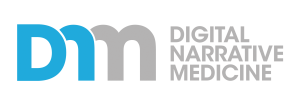Narrative Medicine – the power of the narrative
Whatever you say about big pharma, and there is plenty to say about it, there is no doubt that as an industry, it doesn’t miss a trick in terms of seeing where the market is going and looking to maximise its return.
Which is why I was interested, at a health tech conference I went to lately, in hearing a representative of a big pharma partnership talking about the importance of developing ‘beyond the pill’. A strategic google when I came home shows that this is the pharma drive to invest in new technologies which move the debate and the market beyond the simple provision of medication. Applied to mental health, it has the potential to represent a revolution. It also goes to show how far public perceptions of health and medicine have come, that the market place is shifting, and that pharma is acknowledging the need to move beyond mere medical model and drug answers to a more holistic understanding. This isn’t to say that they have all the answers. Looking at the results of my google search, it is clear that they are investing their efforts into macro scale technologies, and that the human touch may be lost in all this.
However, there was another interesting phrase that popped up in the presentation – narrative medicine. Now that is worth a google. The top hit for it is the Columbia University’s masters course in the subject, which offers an explanation; “The care of the sick unfolds in stories. The effective practice of healthcare requires the ability to recognize, absorb, interpret, and act on the stories and plights of others. Medicine practiced with narrative competence is a model for humane and effective medical practice. It addresses the need of patients and caregivers to voice their experience, to be heard and to be valued, and it acknowledges the power of narrative to change the way care is given and received.”
Narrative therapy, like narrative medicine, also acknowledges that there is a continual sense of self that we repeat in our inner monologue as a story. To effect change in long term health conditions, or long term negative stories, that sense of self and the repeated stories need to be externally expressed and shifted. What is interesting about the concept of narrative medicine is the idea that the doctor, rather than the therapist, can facilitate this change. Narrative medicine also deals in the identity breaks that health conditions cause. By narrating the incident, the events leading up to it and the sense of self afterwards, the service user can experience a whole sense of self which has a continuity before, after and during the health event.
If this applies to physical health conditions and events such as heart attack, cancer or stroke, how much more does it apply to mental health conditions, where the very sense of self is at question? It is my experience as a film maker that the testimony of those reliving their experience of mental ill health and their treatment on film, is a powerful witness and one that is transformational and therapeutic to the interview subject themselves, as well as making it useful to a wider audience.
It is those twin aims, of effecting change and of providing a valuable witness, that I am seeking to effect in my campaign for service users to contribute video to their mental health records. Change in identity, positive health outcomes, a sense of authority, and of partnership with one’s professionals – all these are possible with co-production of health records. The narrative voice is a powerful one, and stories work well on film. But stories are everywhere. One just has to grab them, listen to them, and value them. As a doctor might value and respect a patient’s health condition, valuing and listening to their story is an aspect of that. And it is not one that is without therapeutic or medicinal outcomes. For example, there is a medical technique, the therapeutic effects of which have been measured and proved. It is something that some staff might do quite naturally, others need training to make sure that they employ it. It is called ‘verbal anaethesia’. It happens when for example, as happened to me, I was in the middle of a difficult and painful local proceedure. It wasn’t going well, and the clinicians were absorbed with sorting out what was going wrong physically. I was getting quite distressed and uncomfortable. The nurse, seeing this, asked if I was ok, and then started to ask me about my child, what he was doing in school, what subjects he enjoyed and so on. Quite naturally, by making conversation and referring to my wider narrative, not just what was in the room, she took my mind off my discomfort. The clinical effects of verbal anaesthesia are starting to be documented. Let us hope that the model of narrative medicine can be encouraged, attested to, and evidenced, so that the whole person can start to be treated. It may take big pharma to intervene and throw their money behind it. I hope however, that it is also something that the little person, the doctor, the patient, the grass roots holistic movement, can grab onto and instigate change in the system in their own small way. It’s all about people after all – and yes, that does mean beyond the pill.




